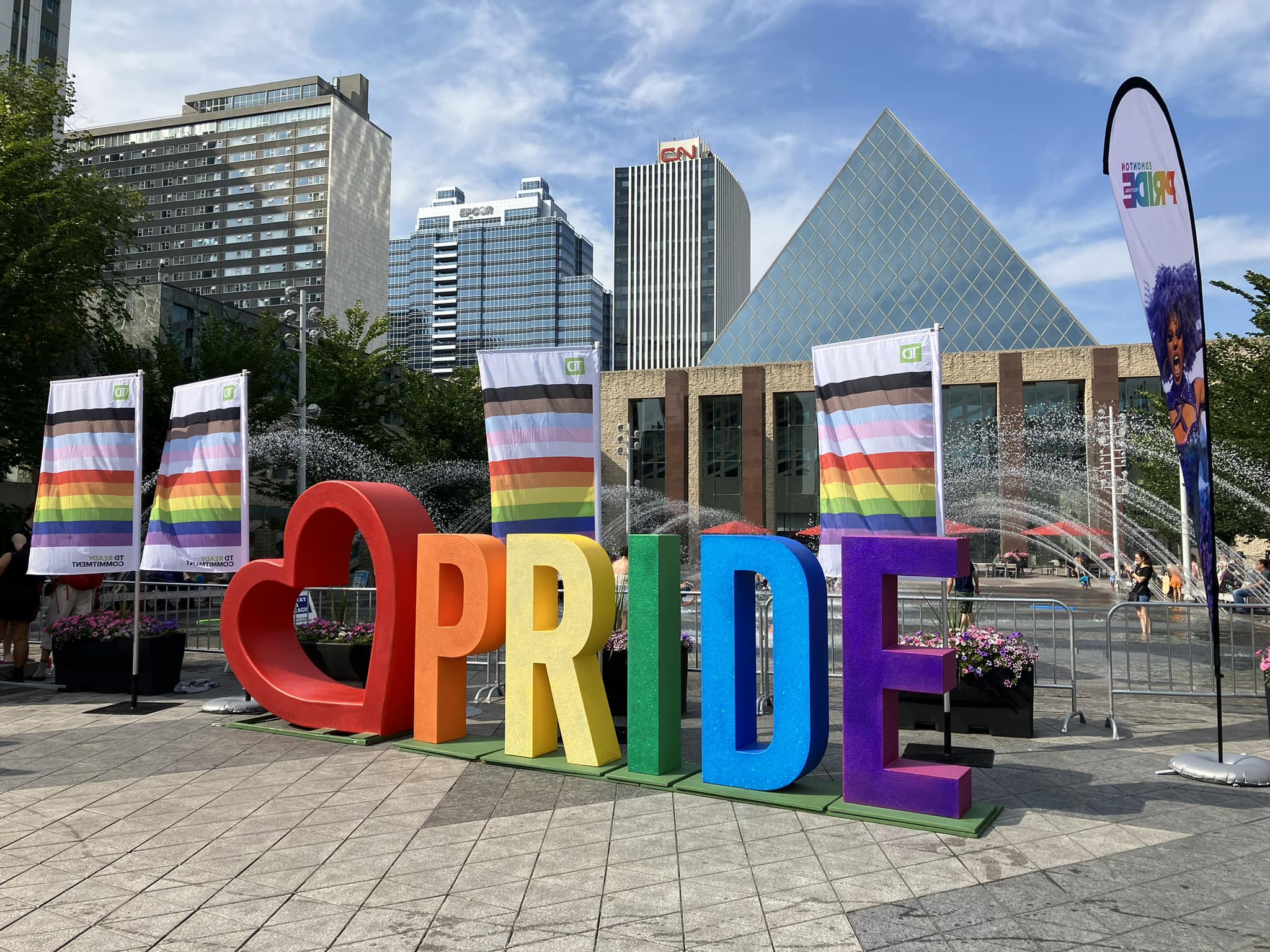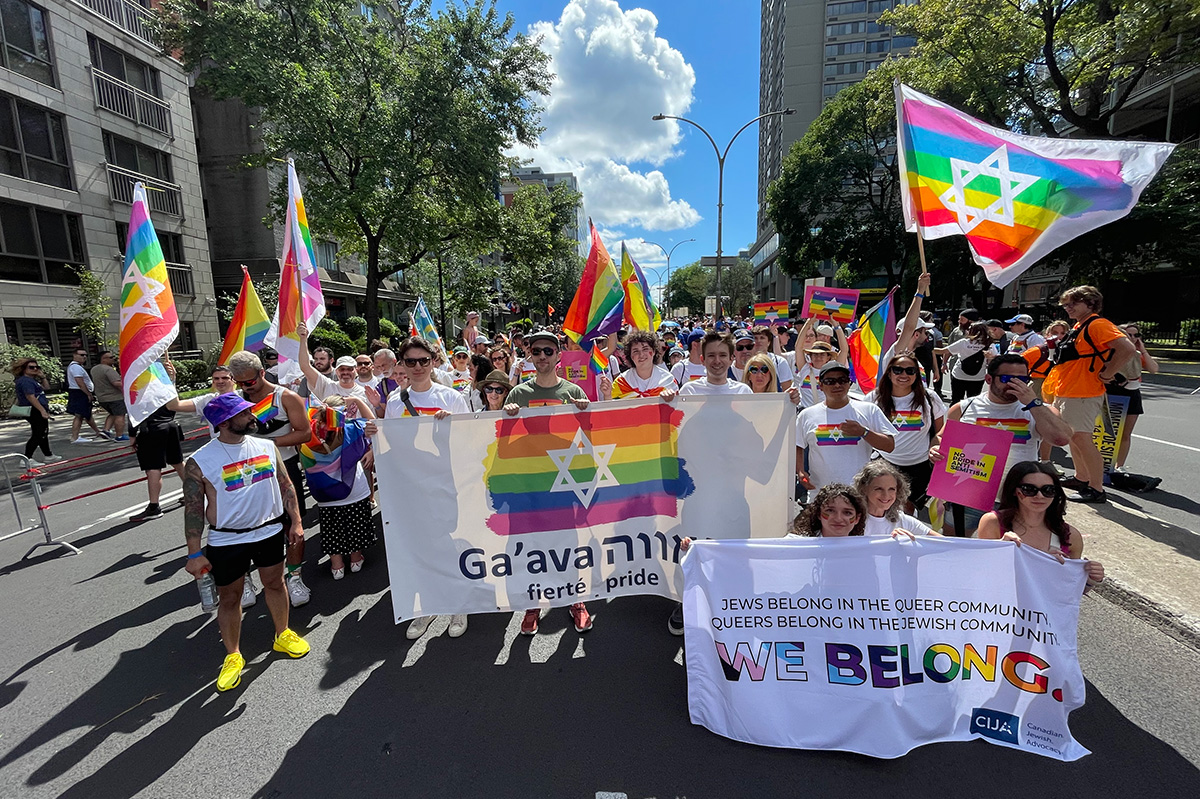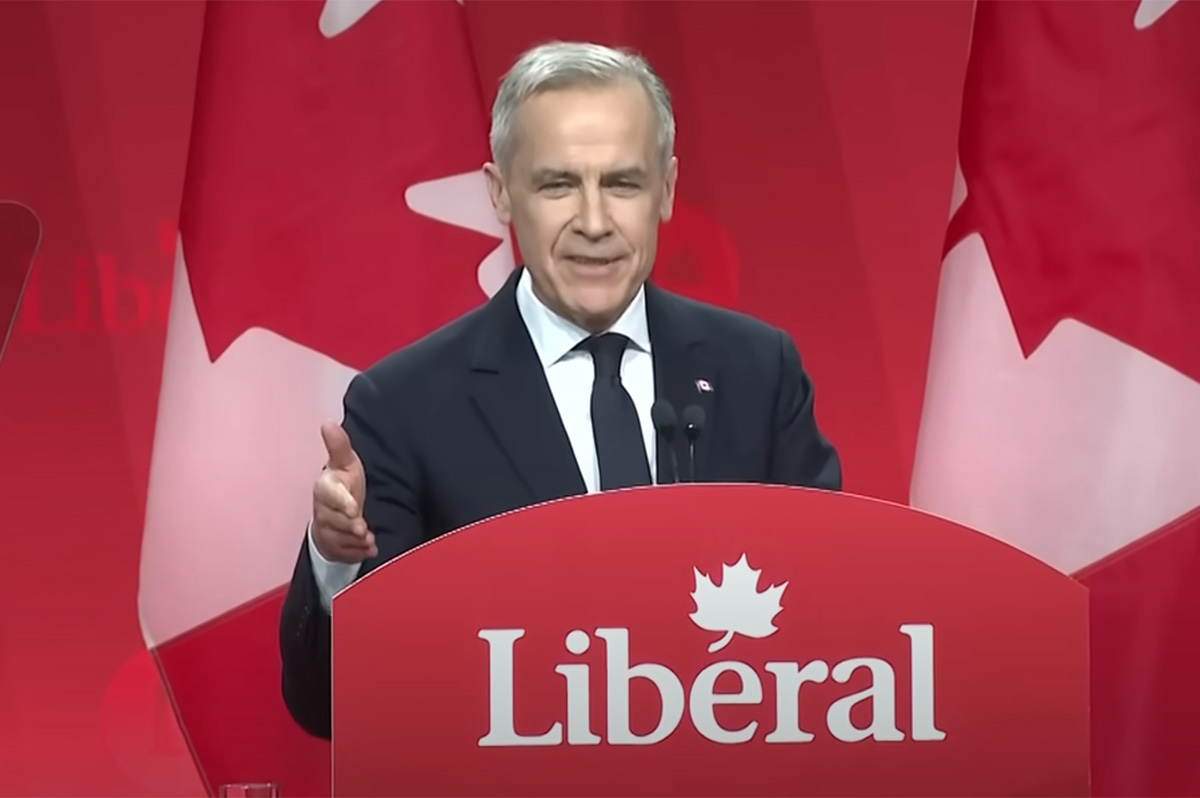Canada
Canadian Pride events ban anti-transgender politicians
United Conservative Party officials pushing anti-trans measures in Alberta, Saskatchewan

Pride festivals in two of Canada’s most politically conservative provinces are putting their feet down and barring lawmakers who are pushing anti-transgender legislation from participating in Pride festivities this season.
This week, nine Pride festivals across Alberta — including those in the largest cities Calgary and Edmonton — put out a joint statement that they will “not allow the participation of the United Conservative Party (UCP) in our 2024 Pride celebrations.” The move came days after several Pride festivals in neighboring Saskatchewan announced they had barred the conservative Saskatchewan Party from participating in their parades.
Both provinces have recently passed or announced policies that would harm trans youth.
Last year, Saskatchewan enacted a regulation that would require schools to out gender non-conforming children to their parents, and when the regulation was struck down by a court, the government enacted a law using the “notwithstanding” rule that allows governments to circumvent the federal Charter of Rights.
In January, Alberta’s conservative government announced it would bring forward legislation in the fall to ban gender confirming surgeries on minors, restrict hormone treatment for minors under 16, bar trans children from playing in gender-appropriate school sports, and require parental notification for students to use a preferred name or pronoun.
“This is a direct response to Premier Danielle Smith’s stated intention to infringe on the rights, freedoms, and healthcare of the transgender community in Alberta,” the statement put out by the Alberta Pride organizations reads. “You may not join our celebrations in June when you plan to attack us in September.”
“Queer rights should not be a political decision. Trans rights are human rights. We invite Premier Smith to re-consider her harmful and damaging policies and engage in meaningful discussions with the Two Spirit, Trans, Nonbinary, and Queer community.”
Other Pride festivals barring the UCP from participating include festivals in Red Deer, Lethbridge, Banff, Canmore, Lacombe, Jasper, Fort Saskatchewan, and Okotoks. The statement was also joined by three queer service organizations.
“When queer people are being attacked by our government, we come together and get things done,” says James Demers, a community organizer with Queer Citizens United, the umbrella organization of Alberta Pride societies that put together the statement.
Queen City Pride, which organizes the annual Pride festival in Saskatchewan’s capital of Regina, was the first city to announce that it would not allow the Saskatchewan Party to participate in its events.
“We decided as a board that we might have to put some distance between us and the Saskatchewan Party. We were very hopeful that they would change course, but they’ve gone against our Charter of Rights. We’re not ok with this, and they’re not backing down,” says Queen City Pride Co-Executive Director Riviera Bonneau.
The Saskatchewan Party has participated in the Queen City Pride in the past, with Premier Scott Moe even marching in the parade in 2019. At the time, he told CTV News he believed it was the “right thing for a premier to do.”
“The thing that triggered our announcement was that the Saskatchewan Party had put forward a registration to participate in our parade,” Bonneau says. “I don’t know why they’d want to participate, but they did try.”
Bonneau says she communicated with other Pride festivals in the province before announcing the decision publicly, as she didn’t want to pressure other festivals to make the same decision. In the event, Pride festivals in Prince Albert, Moose Jaw, Swift Current, and the Battlefords announced that they would not allow the Saskatchewan Party to participate, while a spokesperson for Saskatoon Pride told CBC that it would carefully vet any application to participate, and the Party would be unlikely to be accepted.
While the federal Conservative Party has offered support for the anti-trans policies announced by both provinces, Bonneau says her organization has not banned the federal party yet for a simple reason: it hasn’t applied to participate.
But Demers says his group’s stance is that the federal Conservatives are not welcome at the member festivals either.
“They’re not any nicer to us than the UCP are. I think the consequence extends to them as well,” he says.
Demers says that the federal Conservative Party often applies to participate in Alberta’s Pride festivals, but is typically rejected.
“We have an application process for all of our Prides, and they never pass the process. They’ll typically hold a barbeque somewhere and call it a Pride event, but they have not been invited,” Demers says. “We’ve now formally disinvited them. We would not like them to show up and pretend that they care about us as their constituents. It’s us making it clear that they are not welcome.”
Canada
Shooter who killed 7 people inside Canada school was transgender
Advocacy groups have condemned efforts to link trans people to mass shootings

Canadian authorities on Wednesday said the person who killed seven people and injured more than two dozen others at a school in Tumbler Ridge, British Columbia, the day before was transgender.
Dwayne McDonald, the deputy commissioner for the Royal Canadian Mounted Police in British Columbia, during a press conference said Jesse Van Rootselaar, 18, “was born as a biological male who approximately … six years ago began to transition as female and identified as female both socially and publicly.” McDonald added it is “too early to say whether” the shooter’s gender identity “has any correlation in this investigation.”
The shooter died by suicide, and authorities found her body inside the school.
“We have a history of police attendance at the family residence,” said McDonald. “Some of those calls were related to mental health issues.”
Egale Canada, the country’s LGBTQ and intersex rights group, on Wednesday said it is “heartbroken by the horrific shooting in Tumbler Ridge.”
“Our deepest condolences are with the victims, their families, and the entire community as they navigate unimaginable grief,” said the group in a statement. “We unequivocally condemn this act of violence. There is no place for violence in our schools or in our communities. At this profoundly difficult time, we hold the people of Tumbler Ridge in our thoughts and stand in solidarity with all those affected.”
Mass shootings are relatively rare in Canada, unlike in the U.S.
GLAAD notes statistics from the Gun Violence Archive that indicate trans people carried out less than 0.1 percent of the 5,748 mass shootings in the U.S. between Jan. 1, 2013, and Sept. 15, 2025. The Human Rights Campaign, the National LGBTQ Task Force, and other advocacy groups last August condemned efforts to scapegoat the community after a trans woman shot and killed two children and injured 17 others inside the Annunciation Catholic School in Minneapolis.
Canada
Montreal Pride parade organizers reverse ban on Jewish groups
Initial decision left Ga’ava, Center for Israel and Jewish Affairs ‘deeply shocked’

Organizers of Montreal’s Pride parade have reversed their decision to ban Jewish groups from participating in the annual event.
The Montreal Gazette reported Fierté Montréal on July 30 informed Ga’ava, a group that is affiliated with the Toronto-based Center for Israel and Jewish Affairs, it could not march in the Aug. 10 parade.
Ga’ava in a statement said it and the Center for Israel and Jewish Affairs “were deeply shocked to learn today from Montreal Pride that LGBTQ+ Jews and their allies will be excluded from the 2025 Pride Parade.” Fierté Montréal earlier in the day in its own statement condemned “the ongoing genocide in Gaza, expresses solidarity with the Palestinian people, and calls for the lives of 2SLGBTQIA+ individuals in Palestine, and everywhere in the world — to be respected and protected.”
“Fierté Montréal’s position on violence of any kind inflicted upon marginalized populations or communities — especially 2SLGBTQIA+ communities — has always been clear: we denounce all forms of violence, we amplify the voices of queer communities who, on our stages and in our spaces, express their support for oppressed peoples, particularly the Palestinian people, and their opposition to genocide,” said Fierté Montréal. “The work of Fierté Montréal is rooted in a long-standing movement to fight oppression, and we acknowledge the pain expressed by queer communities in Montréal since the beginning of the conflict in Gaza.”
“Accordingly, and in line with our zero-tolerance policy for hate speech and incitement to violence, and to ensure that the Fierté Montréal Festival remains a safe and celebratory space for everyone, the board of directors of Fierté Montréal has made the decision to deny participation in the Pride Parade to organizations spreading hateful discourse,” it added. “This measure is taken in the context of a complex geopolitical situation and stems from our commitment to preserving the emotional and physical safety of our communities.”
Five Canadian MPs are among those who sharply criticized Fierté Montréal’s decision.
Bernard Truong, the group’s former board chair, resigned on Monday. The Montreal Gazette on Tuesday spoke with his successor, Marlot Marleau, about the decision to reinvite Ga’ava and the Center for Israel and Jewish Affairs to participate in the parade.
“We realized the decision was seen as excluding the entire Jewish community. That was never the intent,” Marleau told the Montreal Gazette. “We’re sorry for making them feel unwelcome.”
“LGBTQ+ Jews are happy that Montreal Pride walked back its politically motivated decision to oust the Jewish community from the Pride Parade,” said Ga’ava President Carlos A. Godoy on Tuesday in a statement he sent to the Washington Blade. “Either you’re inclusive or you’re not. LGBTQ+ Jews have to bring their full authentic selves to the parade — we can’t ask Jews to separate their identities and attachments. LGBTQ+ Jews belong in Pride parades.”
Canada
Liberal Party wins Canadian election
Prime Minister Mark Carney railed against US tariffs, sovereignty threats

Canadian Prime Minister Mark Carney’s Liberal Party won the country’s federal election that took place on Monday.
The Canadian Broadcasting Corporation notes the Liberals won 169 seats in parliament, compared to the 144 the Conservative Party won. The Liberals need 172 seats for a parliamentary majority.
Liberal Bruce Fanjoy defeated Pierre Poilievre, an anti-LGBTQ MP from Ontario who is the Conservatives’ leader, by a 50.6-46.1 percent margin.
The Liberals last month elected Carney to succeed Justin Trudeau as the country’s prime minister. Monday’s election took place against the backdrop of growing tensions with the U.S. that stem from tariffs the Trump-Vance administration has imposed against Canada, and suggestions the country should become the 51st state.
“Our strength lies in our resolve to work together,” said Carney on Tuesday in a post to his X account. “United, we will build Canada strong.”
Thank you, Canada.
Our strength lies in our resolve to work together. United, we will build Canada strong. pic.twitter.com/uN6h4LUAEP
— Mark Carney (@MarkJCarney) April 29, 2025
Egale Canada, the country’s largest LGBTQ and intersex rights group, earlier this year announced it will not attend WorldPride and other events in the U.S. because of the Trump-Vance administration’s anti-transgender policies and “economic warfare and threats to our national sovereignty.”
“Democracy thrives when people engage, and our voices are used in a way where we can say we voted with pride,” said Egale Canada on Tuesday.
“As the new parliament takes shape, we recognize that the journey toward equity and inclusion — especially for 2SLGBTQI communities — extends far beyond election day,” added the group in its post-election statement. “The work of understanding, addressing, and acting on the issues faced by 2SLGBTQI people must be ongoing, collaborative, and grounded in human rights and lived experience.”
Egale Canada said it looks “forward to working with all members of parliament, both newly elected and returning, to help build a Canada where every person is treated with dignity, where diversity is celebrated, and where all are equal — and none are other.”
-

 Baltimore4 days ago
Baltimore4 days ago‘Heated Rivalry’ fandom exposes LGBTQ divide in Baltimore
-

 Real Estate4 days ago
Real Estate4 days agoHome is where the heart is
-

 District of Columbia4 days ago
District of Columbia4 days agoDeon Jones speaks about D.C. Department of Corrections bias lawsuit settlement
-

 European Union4 days ago
European Union4 days agoEuropean Parliament resolution backs ‘full recognition of trans women as women’




















